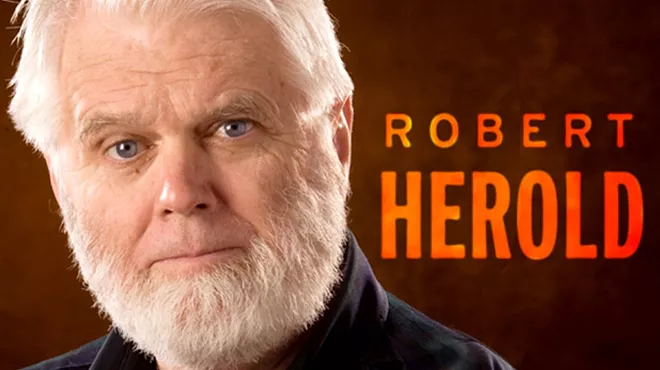Judge Brett Kavanaugh opened his Supreme Court nomination hearing by assuring the senators of the Judiciary Committee that, as a justice, he would always follow precedent as directed by "original meaning." With apologies to originalists, in my view this is bogus for the simple reason that, aside from attribution, there is no such thing as "original meaning." At best it's a guessing game, and once this fact is acknowledged the logic behind the conservative catchphrase falls apart.
The Supreme Court provides majority opinions, fixed in time. Arguments are made, a vote is taken. Yes, decisions should always be informed by precedent — key word, "informed" — which, if not followed, begs for justification. But "original meaning"?
Judge Kavanaugh no doubt would disagree. He considers Justice Antonin Scalia to be his role model. The originalist intellectual trail leads through Scalia back to Robert Bork, who viewed the attribution of "original meaning" as the way to put the brakes on so-called "judicial activism," which to him was really any ruling he didn't like.
Not all of Scalia's colleagues were impressed. Take gun control for example: Justice John Paul Stevens, in his scathing dissent of Scalia's opinion in District of Columbia v. Heller, pointed out that Scalia had actually managed to violate his own "original meaning" test while misconstruing the clear record of guiding precedents. The brilliant and ever acerbic Circuit Judge Richard Posner referred to Scalia's Heller opinion as "incoherent." The gun lobby, to no surprise, loved it.
And it's right here that our other self-proclaimed "originalist," Clarence Thomas, really goes off the rails. Not only does he claim that he always knows the "original meaning," he does Scalia one worse — he dismisses precedent. The scary thing is that Kavanaugh sometimes comes off sounding more like Thomas than Scalia.
So what about Kavanaugh's legal record? He worked for Kenneth Starr and prepared that transparently partisan argument for the impeachment of Bill Clinton. He said that Clinton offended his sensibilities. If that same standard was applied to Donald Trump, we would have been rid of him long ago and for much better reasons. Clinton, after all, never posed a threat to the "security of a free state."
Kavanaugh was also involved in writing the justification for Bush v. Gore, a case that appears now on most lists of the single worst Supreme Court decisions of all time. When asked about all this, Kavanaugh did a version of "duck and cover." He focused the question on the Florida State Constitution and underscored the power of the Legislature to decide elections — which entirely misses the point. In fact, votes are supposed to be counted and therefore dictate what the Legislature does. A final tally of Florida's election results in 2000 was blocked by the Bush v. Gore decision.
Furthermore, that court, supported by Kavanaugh, ignored the corrupting politics of the moment. Enron was flying in, free of charge, dozens of "vote counters" all of whom had instructions to help Bush win. In effect, the court turned a blind eye to the old "fruit of the poisonous tree doctrine."
How about voter suppression? The John Roberts Court gutted the Voting Rights Act, and despite the more recent obvious examples of voter suppression in the 2016 election, by putting Kavanaugh on the bench we likely will see additional reasons laid out in favor of legalizing more of the same.
He also has a record of almost always supporting the claims of corporate America, which suggests that he would be no help in regards to, say, our profound climate change challenges.
Which brings us to Roe v. Wade. When questioned by Sen. Susan Collins, Kavanaugh stated that "Roe is settled law." For the record, both John Roberts and Clarence Thomas used these very same words during their confirmation hearings.
Frankly, overturning Roe v. Wade might no longer be in the GOP's best interest. Trump's outrageous displays of sexism and racism have mobilized an army of angry anti-Trump women voters. Overturning Roe would likely accelerate the apostasy and, at the same time, Republicans would lose their favorite issue.
It seems for sure that with Kavanaugh on board, the Supreme Court would more routinely support what red states are already doing — shutting down women's health clinics.
Lost in all this Talmudic mumbo jumbo is the most important question of all: Just why did Trump pick Kavanaugh? Trump has openly stated that he wanted a judge who would carry out his agenda, and he is certain Kavanaugh is that judge.
What seems certain is that Judge Kavanaugh, who praises the 1954 Brown v. Board of Education decision, actually would never have supported that decision or any decision like it. What the Warren Court sought, in the words of author Richard Kluger, was "simple justice." Simple justice wouldn't seem to be high up on Kavanugh's list of things to promote and protect.
More likely, back in 1954, as today, he would have regarded this decision and all the social progress it created to be just another example of judicial activism. ♦






















